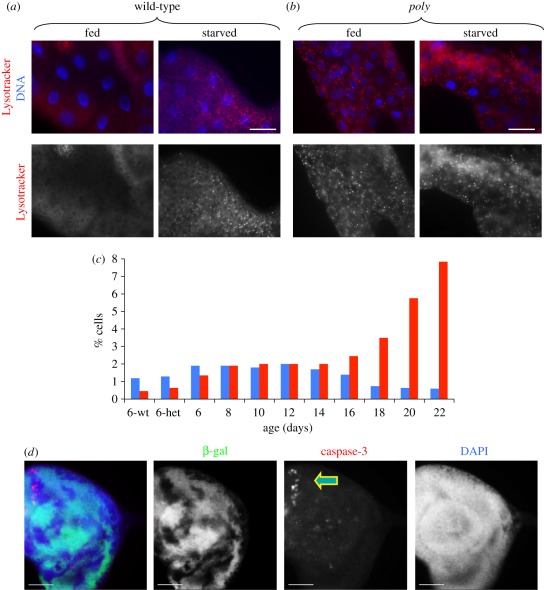Figure 5.
poly mutations leads to constitutive autophagy and increased cell death. (a,b) Lysotracker (an acidic component-specific fluorescent dye) was used to monitor the state of autophagy in early third instar larval fat body. Autophagy was indicated by a punctate Lysotracker appearance. Live fat body tissues were stained with Lysotracker (red) and Hoechst 33342 to label DNA (blue). (a) In wild-type larval fat body, no autophagy is evident. As indicated by Lysotracker positive bright spots, autophagy is active upon 4 h amino acid starvation in 20 per cent sucrose solution. (b) Lysotracker puncta can be detected in fed poly fat body, as well as in starved poly fat body. (a,b) Scale bar, 50 µm. (c) Quantitation of mitosis and apoptosis in larval neuroblasts over development. While mitotic activity decreases, apoptosis increases during the extended larval stage of poly larva. Blue bars, p∼H3; red bars, TUNEL. (d) Images showing imaginal disc dissected from third instar larva of the genotype eyFLP; FRT82Bβ-Gal/FRT82Bpoly05137. Immunostaining for cleaved caspase-3 (red), β-galactosidase (green) and DNA (blue) was performed. poly mutant clones are indicated by the lack of β-Gal staining. Scale bar, 30 µm.

